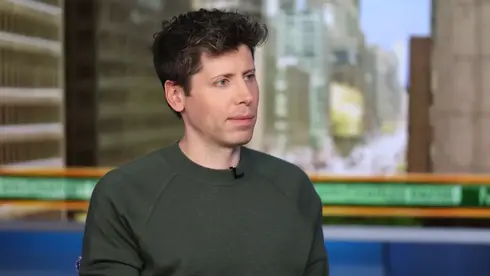
Being polite to ChatGPT? It turns out it costs OpenAI millions
Sam Altman says manners like “please” and “thank you” are quietly driving up costs.
Speaking politely to ChatGPT might feel like good manners—but it also costs OpenAI a surprising amount of money. At least, that’s what founder and CEO Sam Altman claimed over the weekend.
In response to a post on X (formerly Twitter), where a user asked how much electricity OpenAI was wasting on people saying “please” and “thank you” to its models, Altman replied: “Tens of millions of dollars well spent—you never know.”
Professor Lev Muchnik, Associate Professor in the Data Science Department at the Hebrew University Business School., explains why those extra pleasantries are so expensive. “Unlike humans, who often find it easier to understand a question when it's explained in more detail, for AI models, the longer the input, the more computing power is required to process it,” he says.
Language models like ChatGPT break down text into units called tokens. A token can be a full word, part of a word, or even a punctuation mark. The model processes each token in the context of the tokens before it. The longer the input, the more tokens it contains—meaning more calculations, and therefore more cost.
To put it into perspective: a single page of a book typically contains around 300 tokens, which cost about 0.3 cents to process. But that’s just the input. According to Muchnik, generating the output is even more expensive, with response tokens costing three times more than input tokens. So longer prompts with polite wording not only cost more to understand—they often generate longer answers, multiplying the expense.
A late-2024 survey found that 67% of American users say they’re polite to their chatbots. Among those, 55% said they do so because “it’s the right thing to do,” while 12% said it’s to stay on good terms with AI “in case it takes over the world.”
But does politeness actually help? According to Muchnik, using words like “please” or “thank you” can subtly influence how the model interprets the surrounding text, potentially affecting the answer. However, he emphasizes that there’s no consistent evidence that politeness improves results: “It depends on how the model was trained,” he says.
Shira Weinberg Harel, an AI entrepreneur, product expert, and host of the podcast Bina Bekatna, says politeness can sometimes yield better results—not necessarily because of the tone, but because polite phrasing tends to be more detailed and structured. “Studies show that reasonably polite prompts—just basic courtesy like ‘please’ or ‘thank you’—often provide more context, which helps the AI respond more precisely to user needs,” she says. “No need to overdo it with flattery.”
Still, there’s a good reason to drop the niceties—especially when using free AI tools. Most free-tier models limit users to a set number of tokens per session or month. Adding unnecessary pleasantries means burning through your quota faster.
Weinberg Harel offers a few practical tips to save tokens without sacrificing results:
- Be concise and specific (but not at the cost of clarity).
- Ask for shorter answers when possible.
- Start a new, clean conversation if the old one has too much context—this reduces the number of tokens the model must process in memory.
In the end, politeness to AI may be free of moral cost—but it’s not free of monetary cost. Whether it’s worth it? That, as always with AI, depends on your prompt.













